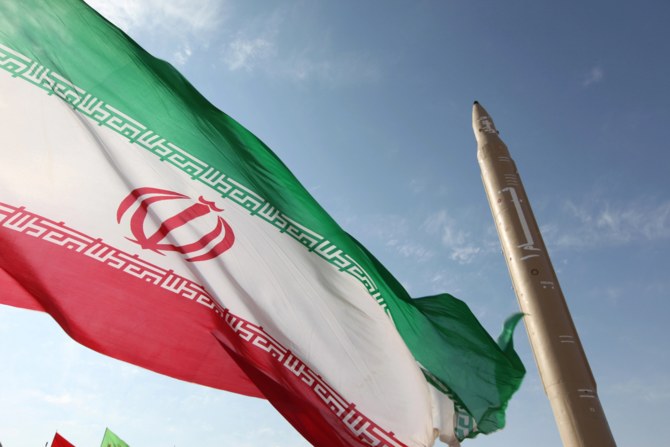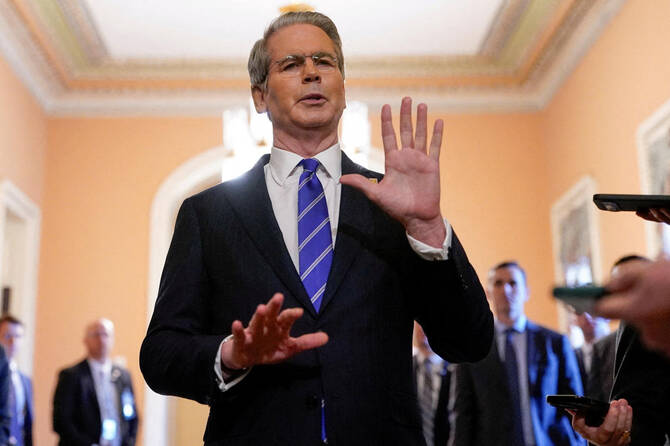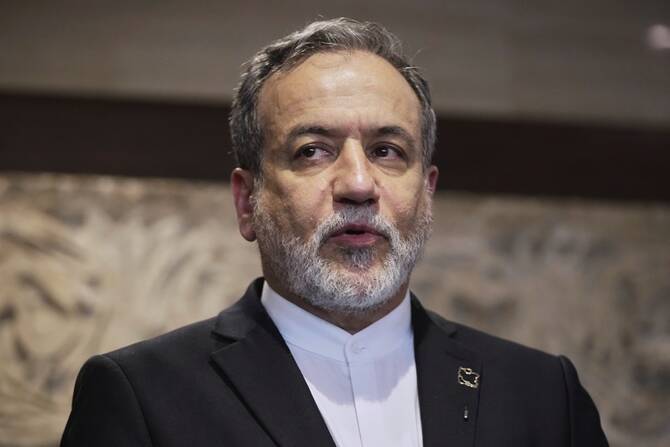WASHINGTON/TEHRAN: The United States said on Thursday if Iran wanted sanctions relief beyond that of the 2015 Iran nuclear deal — an apparent reference to removing Iran’s Revolutionary Guards from a US terrorism list — it must address US concerns beyond the pact.
“We are not negotiating in public, but if Iran wants sanctions lifting that goes beyond the JCPOA, they will need to address concerns of ours beyond the JCPOA,” a State Department spokesperson said, referring to the 2015 deal by the acronym for formal name, the Joint Comprehensive Plan of Action.
“Conversely, if they do not want to use these talks to resolve other bilateral issues beyond the JCPOA, then we are confident that we can very quickly reach an understanding on the JCPOA and begin reimplementing the deal,” the spokesperson added. “Iran needs to make a decision.”
The US spokesperson was responding to a top Iranian official who earlier said Iran will not give up on its plans to avenge the 2020 US assassination of Quds Force Commander Qassem Soleimani, despite “regular offers” from Washington to lift sanctions and provide other concessions in return.
Iran has been engaged for a year in negotiations with France, Germany, Britain, Russia and China directly, and the United States indirectly, to revive the 2015 deal, known formally as the Joint Comprehensive Plan of Action (JCPOA).
General Qasem Soleimani, who headed the Quds Force, the foreign operations arm of the Revolutionary Guards, was killed in a US drone strike in Iraq’s capital Baghdad in January 2020.
“Enemies have asked us several times to give up avenging the blood of Qasem Soleimani, for the lifting of some sanctions, but this is a fantasy,” Guards navy commander Rear Admiral Alireza Tangsiri said, quoted by the Guards’ Sepah News website.
The Guards are the ideological arm of Iran’s military.
Former US president Donald Trump ordered Soleimani killed, saying he was planning an “imminent” attack on US personnel in the Iraqi capital.
Iran responded to his assassination by firing missiles a few days later at Iraqi bases housing US soldiers, causing injuries.
In 2018, two years before Soleimani’s killing, the US unilaterally withdrew from the nuclear deal and reimposed sanctions on Iran, prompting Tehran to step back from its commitments.
Negotiations in the Austrian capital Vienna aim to return Washington to the deal, including through the lifting of sanctions, and to ensure Tehran’s full compliance with its commitments.
Among the key remaining sticking points is Tehran’s demand to delist the Revolutionary Guards from a US terror list.
That sanction, imposed by Trump after he withdrew from the nuclear agreement, is officially separate from the atomic file.
Right-wing US politicians and Israel, the arch-rival of Iran, have warned Washington against lifting sanctions on the Guards.
Iran this week said that “technical issues” in the now-paused negotiations to restore the nuclear agreement have been resolved, but “political” issues persist ahead of concluding any deal.
“We have repeatedly stressed (to Washington) that Iran is not willing to abandon its red lines,” Iranian Foreign Minister Amir-Abdollahian said Thursday, without giving further details.
On Monday, Iran’s foreign ministry spokesman Saeed Khatibzadeh said “the perpetrators, officials, accomplices and advisers” in Soleimani’s death “will not go unpunished,” adding that “these people must be brought to justice.”
(With Reuters and AFP)






















